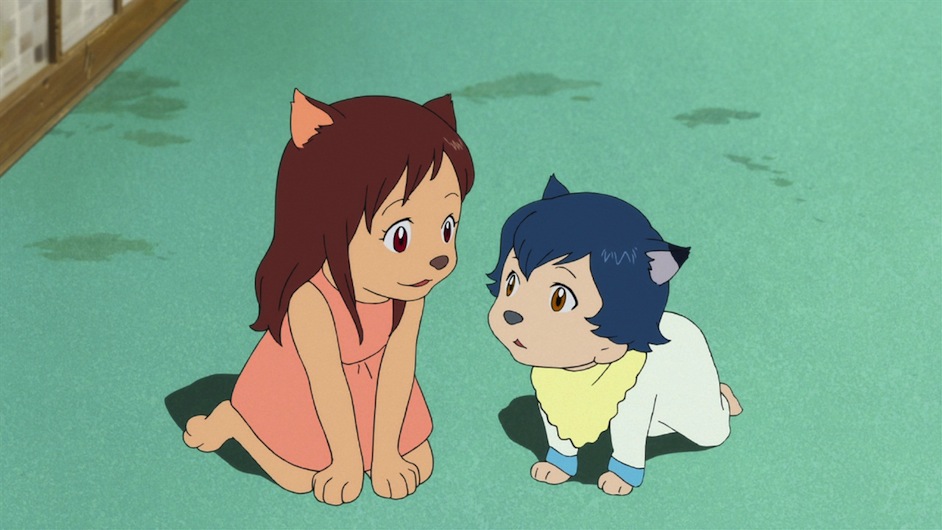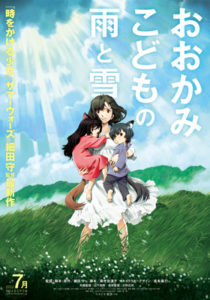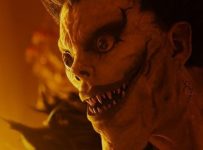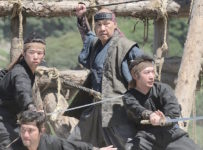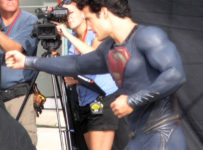Mamoru Hosada’s third film proves him to be an unstoppable weaver of magic, creating another instant masterpiece.
Director: Mamoru Hosoda
Writers: Mamoru Hosoda, Satoko Okudera
Runtime: 117 minutes
Starring: Aoi Miyazaki, Takao Osawa, Haru Kuroki, Yukito Nishii
Distributor: Studio Chizu, Madhouse, Madman (AU)
Festival: Reel Anime 2012
Country: Japan
Rating (?): Certified Bitstastic (★★★★★)
When former Digimon director Mamoru Hosoda dropped The Girl Who Leapt Through Time (2006), he put himself on the map as a filmmaker to watch. With his follow-up Summer Wars (2009), we saw the awakening of a magnificent talent, proving he deserved to be spoken of in the same terms as the unstoppable Studio Ghibli. Such comparisons bring with them a certain degree of expectation for all future films, and the intimate/epic dichotomy of that second film seemed unlikely to be topped any time soon. Having already denied the sophomore slump, Hosada now delivers a hat-trick with Wolf Children, an uplifting and heartbreaking tale of family.
Although the full title of this film is The Wolf Children Ame and Yuki (おおかみこどもの雨と雪), the focus of the film is actually Hana (voiced by the superstar Aoi Miyazaki), who we meet as a college student who falls in love with the mysterious man who is sneaking into classes. She soon discovers that he is a wolfman, and the two become inseparable. When tragedy strikes, she is left to look after her two children Yuki and Ame, who have the ability to transform into wolves. Fearful that they will be revealed if they stay in the city, she moves the family out to the country, where the children must ultimately decide which part of their dual nature they wish to embrace.
Like Summer Wars, Hosada’s latest is a simple tale about family masquerading inside of a high-concept. Once the initial premise is established, much of the film concentrates on the trials and tribulations of a single mother raising two (unusually gifted) children on her own. Unlike the frenetic energy of that previous film, which seamlessly intertwined the digital and traditional worlds that make up Japan, Wolf Children is a far more languidly paced affair. Indeed, in many ways this third film sees a far more confident Hosada at the helm, freeing himself from the duality of his sci-fi past and crafting (with regular collaborator Satoko Okudera) a picture that revels in its own simplicity.
Wolf Children proceeds at a much gentler pace than the director’s previous outings, and even its lycanthropic leanings can’t diminish the beauty of the film. Imbuing these simple constructs with a world of emotion is an amazing voice cast, led by the beautiful Aoi Miyazaki. Just as she did with her character in Solanin, she conveys heartbreak and earnestness in every line. Like the film, she invites you to spend time with her family, and the joy and tears (both of which can be found in abundance) come in natural waves.
The animation is once again gorgeous, perhaps Hosada’s most handsome to date, beginning in an almost ethereal fashion before stunning with rolling hills of green and sparkling backgrounds. The comparison Hosada has earned with Hayao Miyazaki is a flattering one, and it is certainly apt in terms of the timeless fable quality to each of his films. Yet with Wolf Children, Hosada also firmly places his own stamp on the medium and crafts a masterpiece of his very own.
Wolf Children was released in Japan on 21 July 2011. It screened in Australia in September 2012 as part of Reel Anime. It will continue to play at Cinema Nova in Melbourne following Reel Anime. It is planned for an US released in October 2012.

